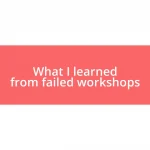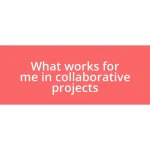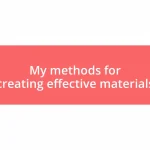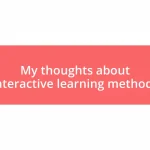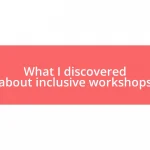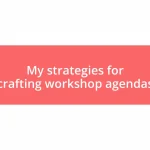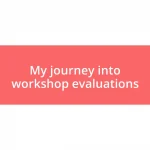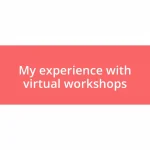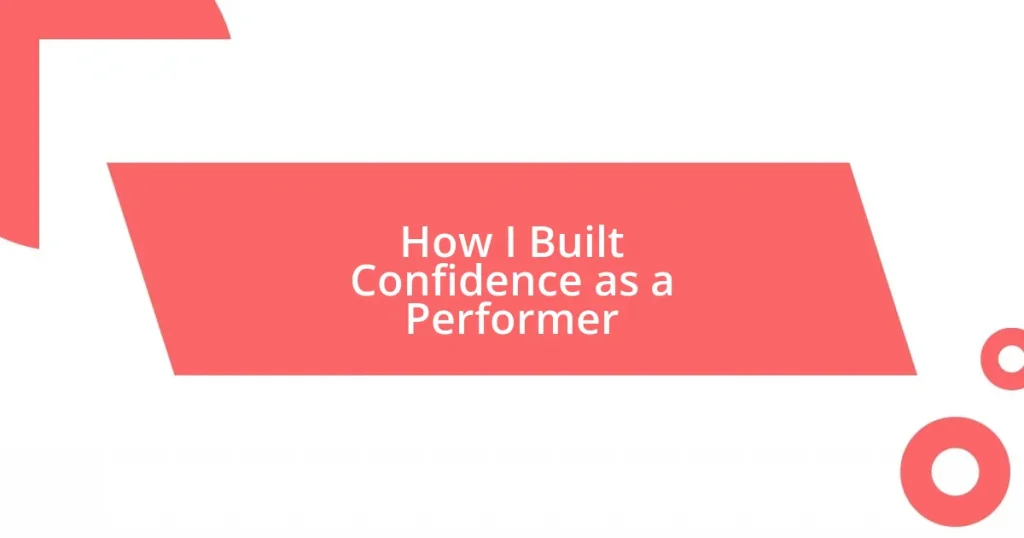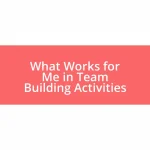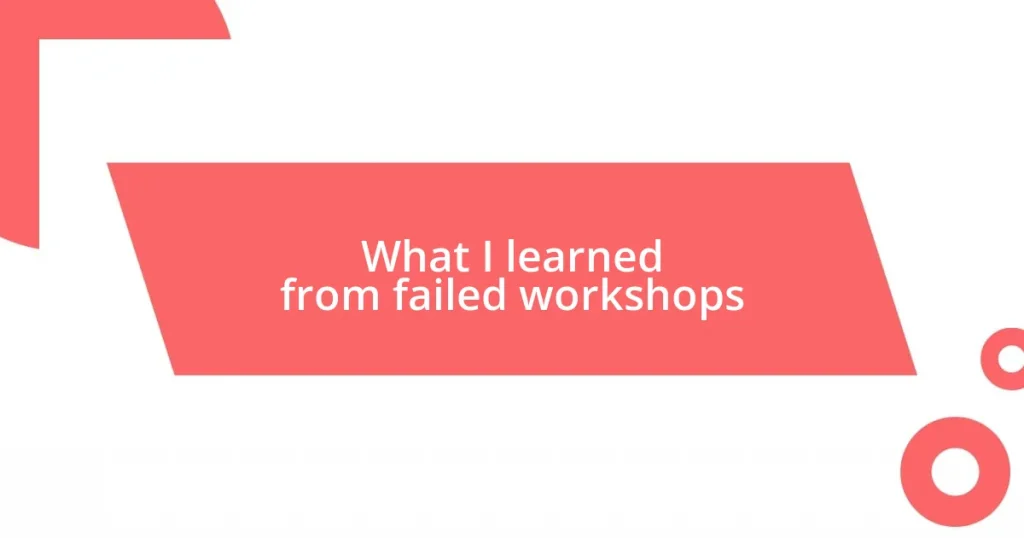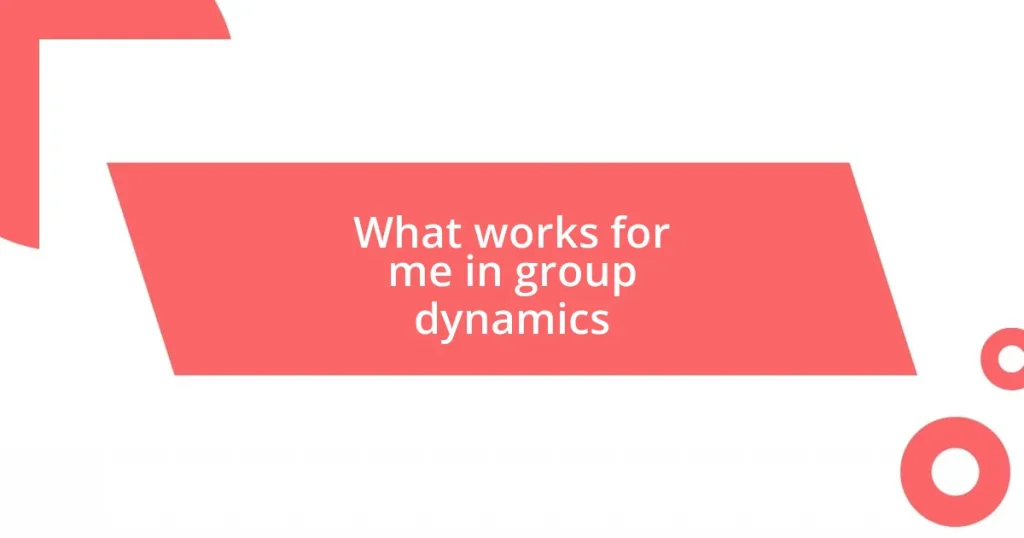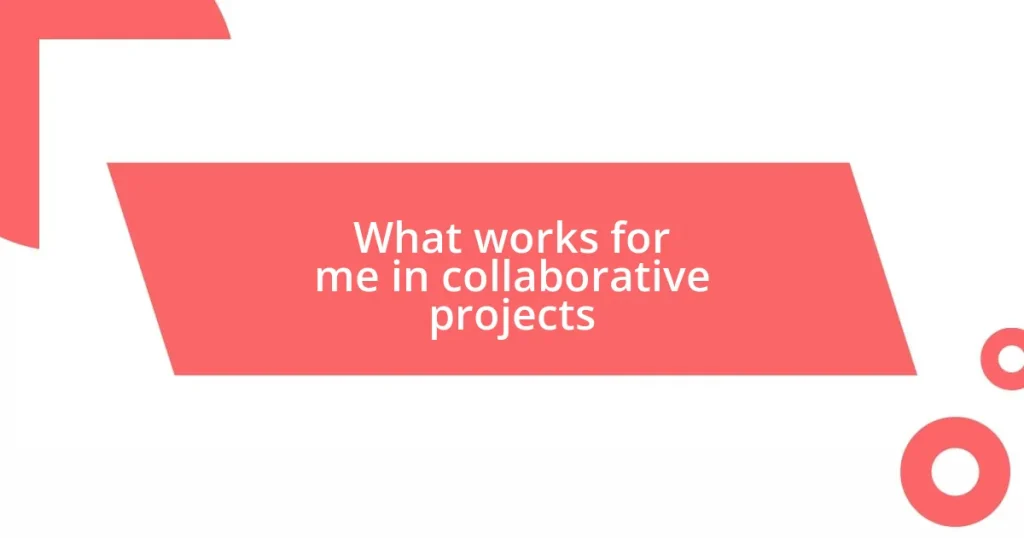Key takeaways:
- Performance anxiety is common and can be alleviated by recognizing it as a normal response experienced by many performers.
- Adopting a positive mindset through visualization, affirmations, and gratitude can transform the performing experience.
- Setting achievable goals, such as focusing on mastering a specific section of a performance, helps build confidence and reduces pressure.
- Seeking constructive feedback in a supportive environment fosters growth and enhances performance skills.
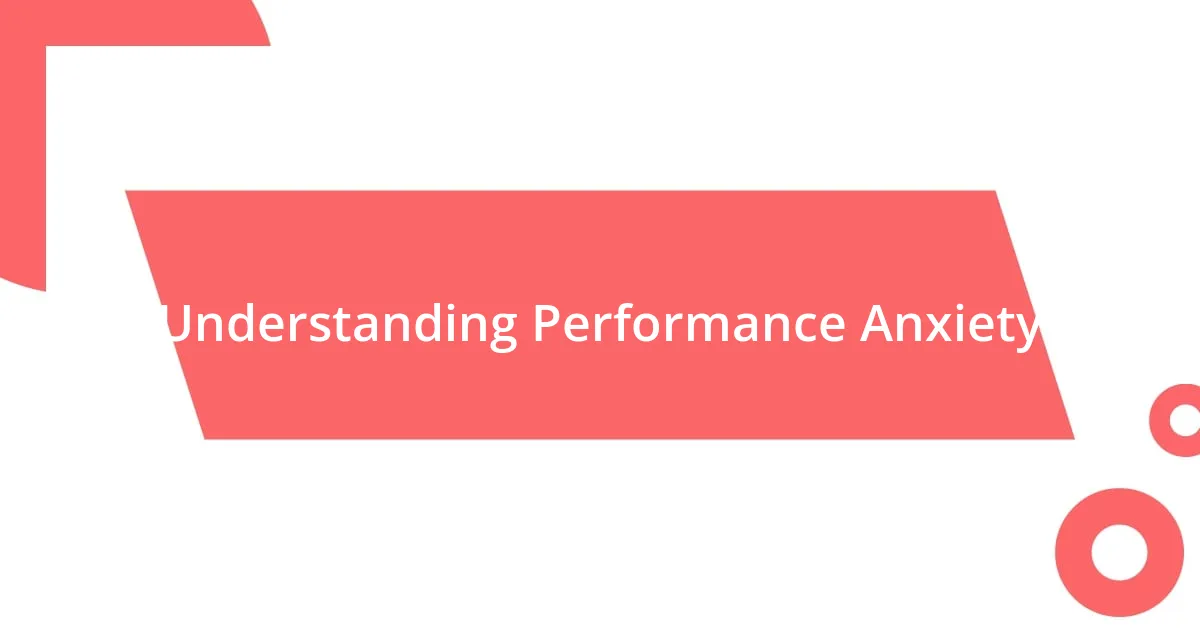
Understanding Performance Anxiety
Performance anxiety can feel like an overwhelming wave crashing down just before you step into the spotlight. I remember vividly the first time I performed solo; my palms were clammy, and my heart raced at the thought of letting everyone down. It made me wonder: is the fear of judgment stronger than my love for performing?
This anxiety often stems from a fear of failure or a concern about how others perceive us. Each time I faced an audience, I battled an inner voice whispering doubts that made me second-guess my abilities. Have you felt that nagging worry that you’ll forget your lines or hit a wrong note? It’s a common experience, and acknowledging that can be the first step toward overcoming it.
Recognizing that performance anxiety is a normal response can be liberating. I once met a seasoned performer who shared how he still gets anxious before every show. Hearing that even the best wrestle with nerves helped me realize that my feelings were not as isolating as I thought. Isn’t it comforting to know you’re not alone in this journey?
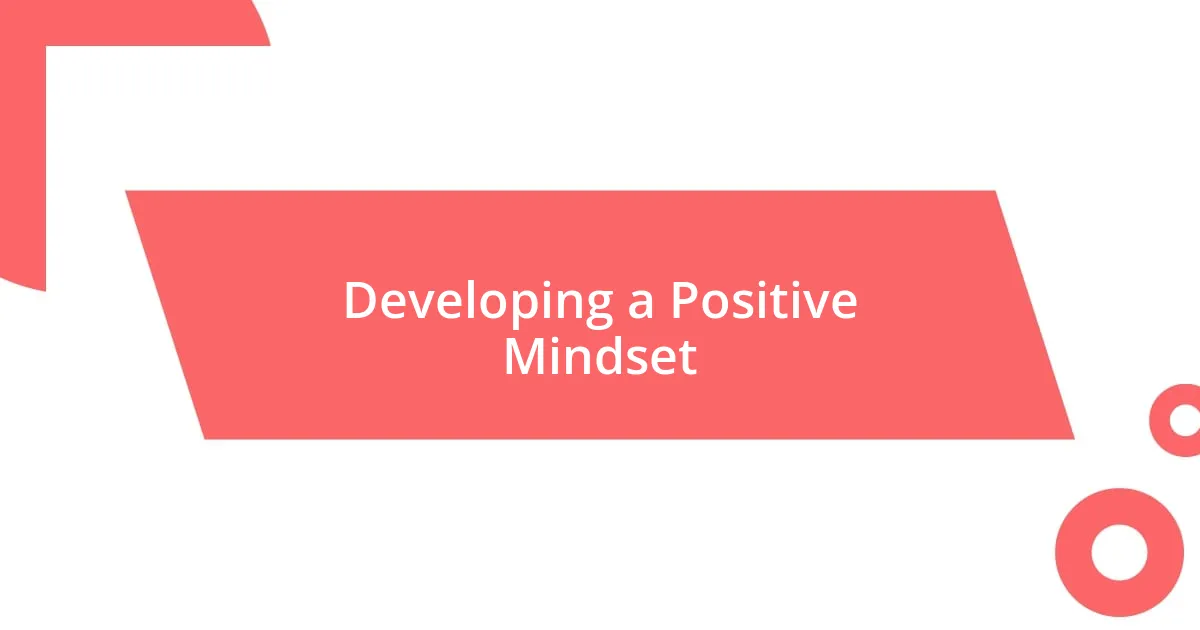
Developing a Positive Mindset
Developing a positive mindset is essential for any performer. I remember a time when I walked onto a stage overwhelmed by self-doubt, but I quickly shifted my focus to what brought me joy about performing. It was an eye-opener! I started to view each performance as an opportunity rather than a hurdle, which transformed my experience entirely.
To cultivate a positive mindset, consider these strategies:
- Visualization: Imagine yourself performing successfully. I often spend time picturing the audience’s positive reactions, which boosts my confidence.
- Affirmations: I create affirmations that resonate with me, like “I am confident and capable.” Reciting these regularly shifted my inner dialogue.
- Gratitude: Each time before a performance, I reflect on what I’m thankful for—my support system, the chance to share my art, and even the nerves that remind me I care.
- Celebrate Small Wins: I’ve learned to acknowledge every step, whether nailing a note or connecting with the audience. Each win builds momentum.
Embracing these practices has significantly changed how I approach performing. It’s about nurturing a positive lens, even when nerves bubble up inside!
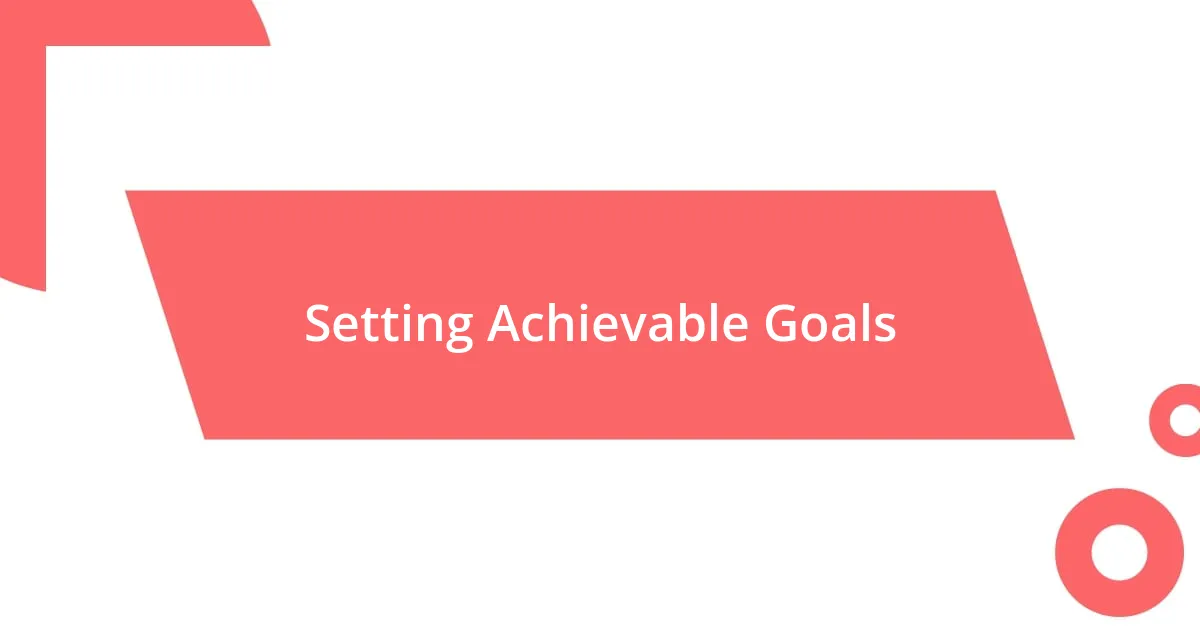
Setting Achievable Goals
Setting achievable goals is a vital component of building confidence as a performer. In my journey, I discovered that setting smaller, incremental goals rather than aiming for a massive leap often led to greater satisfaction. For instance, instead of focusing solely on delivering a flawless performance, I set the goal of mastering a specific section of a song. By breaking it down, not only did I feel a sense of accomplishment with each milestone, but it also reduced the pressure I placed on myself.
When I first started, the idea of performing in front of a large crowd was daunting. To manage this, I set a goal to perform at a small family gathering. The experience was less stressful, and I could focus on enjoying the moment. I remember the warmth of their smiles and how their encouragement lifted my spirits. That gentle push made me realize that each small show built my confidence.
Additionally, documenting my progress helped me stay motivated along the way. I maintained a journal to note each goal, detailing what I achieved and how it made me feel. Reflecting back on those entries became a powerful reminder of my growth. Sometimes, the journey means more than the destination itself, and those small steps paved the way for bigger successes down the line.
| Type of Goal | Description |
|---|---|
| Performance Goals | Focus on executing specific elements like mastering a movement or a section of a song. |
| Feedback Goals | Set targets for seeking feedback from trusted peers or mentors after performances. |
| Emotional Goals | Aim to enjoy the process, like feeling relaxed or connecting with the audience. |
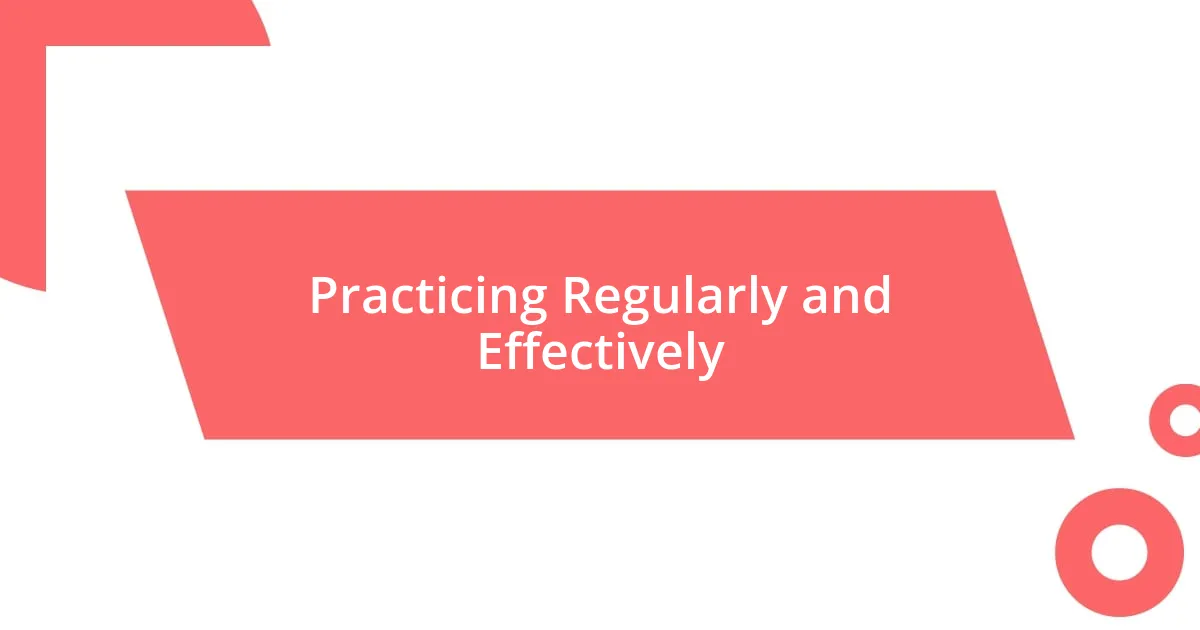
Practicing Regularly and Effectively
Practicing regularly and effectively is the backbone of building confidence as a performer. I still remember the early days when my practice sessions felt more like a chore than a joy. I noticed that committing to a schedule transformed this feeling. Setting aside dedicated time daily allowed me to explore my craft more deeply, and with each session, I felt my confidence growing. Have you ever experienced that sense of progress when you finally nail a tricky piece? It’s a rush that keeps you coming back for more!
One method that proved incredibly effective for me was breaking down my practice into focused segments. Instead of jumping into a full performance, I would isolate specific techniques or sections I struggled with. I vividly recall when I spent an entire week just working on breath control during a song. At first, it felt tedious, but once I saw the results blooming in my performances, I couldn’t ignore how rewarding it was. This practice approach eliminates the overwhelm and lets you savor incremental improvements.
Moreover, making my practice sessions interactive was a game changer. I often invited friends or fellow musicians to join me. We’d critique each other and share tips, creating a supportive atmosphere that made every session enjoyable. I’ve realized how impactful it is to incorporate real-time feedback. Can you imagine how empowering it feels to know that you’re not alone on this journey? It fosters a sense of community and brings out the best in each performer. It’s those connections that solidify my belief that effective practice is as much about collaboration as it is about individual effort.
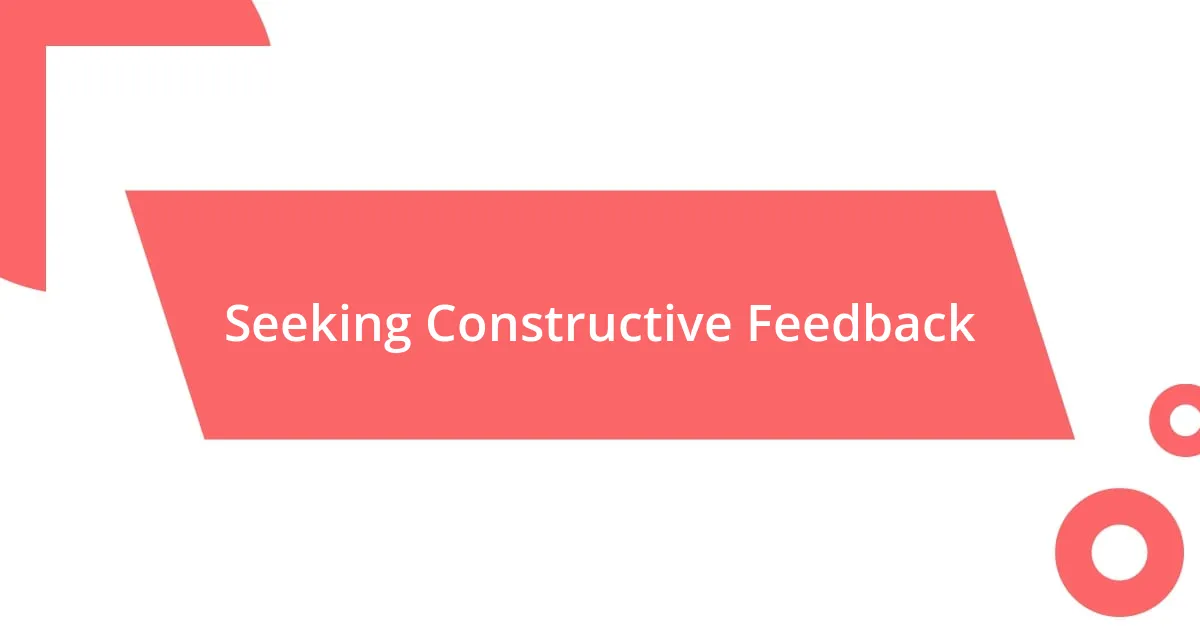
Seeking Constructive Feedback
Seeking constructive feedback has always been a cornerstone of my growth as a performer. I remember a moment right after I performed at a local talent show; the applause was thunderous, yet I felt a twinge of uncertainty. That’s when I approached a mentor for advice. Her insightful commentary helped me see my blind spots—not just the positives, but areas to improve. It’s astonishing how much perspective a trusted opinion can offer, reinforcing my belief that feedback is a gift if embraced with an open mind.
I’ve also learned that timing is everything when it comes to seeking feedback. After a performance, I often ask for thoughts while the experience is still fresh. This immediacy provides potent insights that I might overlook in hindsight. I vividly recall one performance where I thought I had nailed it, only to hear from my fellow performers about specific moments that missed the mark. Their constructive feedback, although initially hard to digest, became the fuel for my determination to refine those areas. Have you ever received comments that stung at first but ultimately pushed you to new heights?
Creating a safe environment for feedback is essential. I often seek opinions in informal settings, like over coffee with fellow artists. It’s in these relaxed moments that honest and sometimes vulnerable conversations arise. Sharing my struggles and successes not only builds camaraderie but also fosters a deep understanding of each other’s journeys. I can’t stress enough how liberating it is to feel that I’m part of a community that uplifts and critiques with care. Wouldn’t you agree that finding a support system can transform how we perceive and respond to feedback?
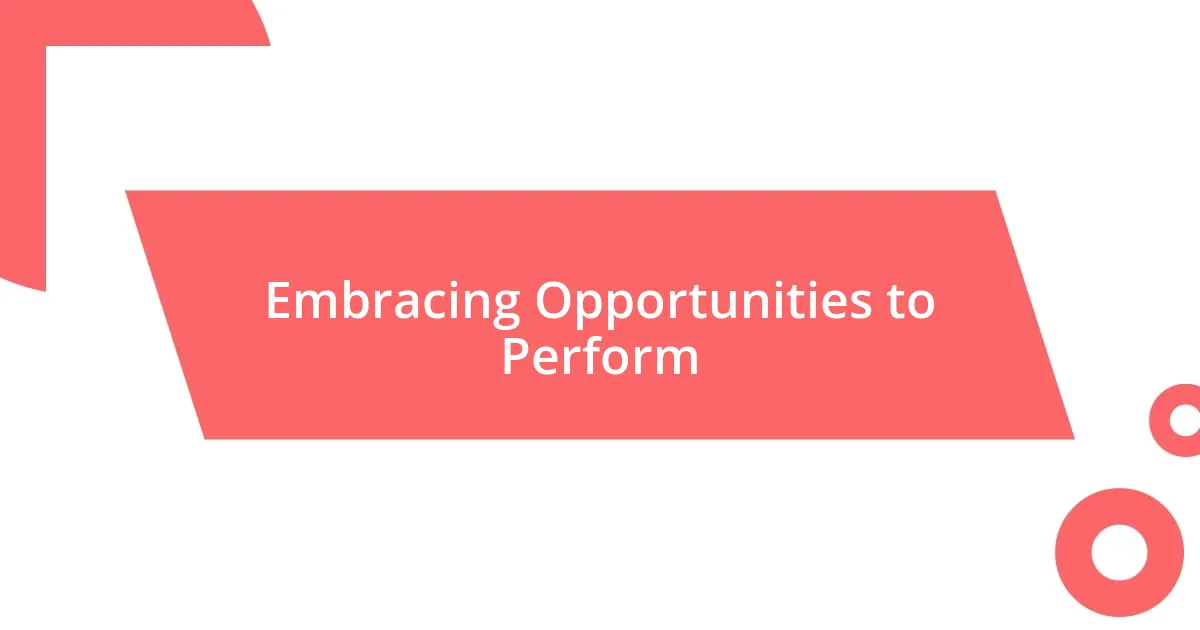
Embracing Opportunities to Perform
Embracing opportunities to perform can feel like standing on the edge of a diving board, ready to leap into the unknown. I remember my first open mic night—it was both exhilarating and terrifying. Taking that stage, I felt a swirl of emotions, but once I played my first note, the fear melted away. It’s astounding how stepping out of my comfort zone not only showcased my abilities but also ignited a spark of confidence I didn’t know I could have.
I actively sought out every performance opportunity I could find, from community events to impromptu gatherings with friends. At one particularly memorable backyard party, I played a few songs with some friends. Although it started as a casual jam, the laughter and cheers from the crowd transformed the experience into something magical. Have you ever noticed how sharing your passion with others can amplify your confidence? That night, I realized that each performance was a chance to grow, and the support from those around me created an environment that felt safe and nurturing.
Moreover, I’ve found that embracing opportunities often leads to unexpected connections and collaborations. While performing at a local festival, I stumbled upon a fellow artist who had a style completely different from mine. We ended up jamming together, blending our music genres in a way that felt both fresh and invigorating. I’ll never forget the thrill of creating something unique on the spot. Isn’t it interesting how vulnerability in performing can lead to unforgettable friendships and artistic growth? Embracing each chance to perform has not only shaped my artistry but has deepened my appreciation for the shared experience of music.
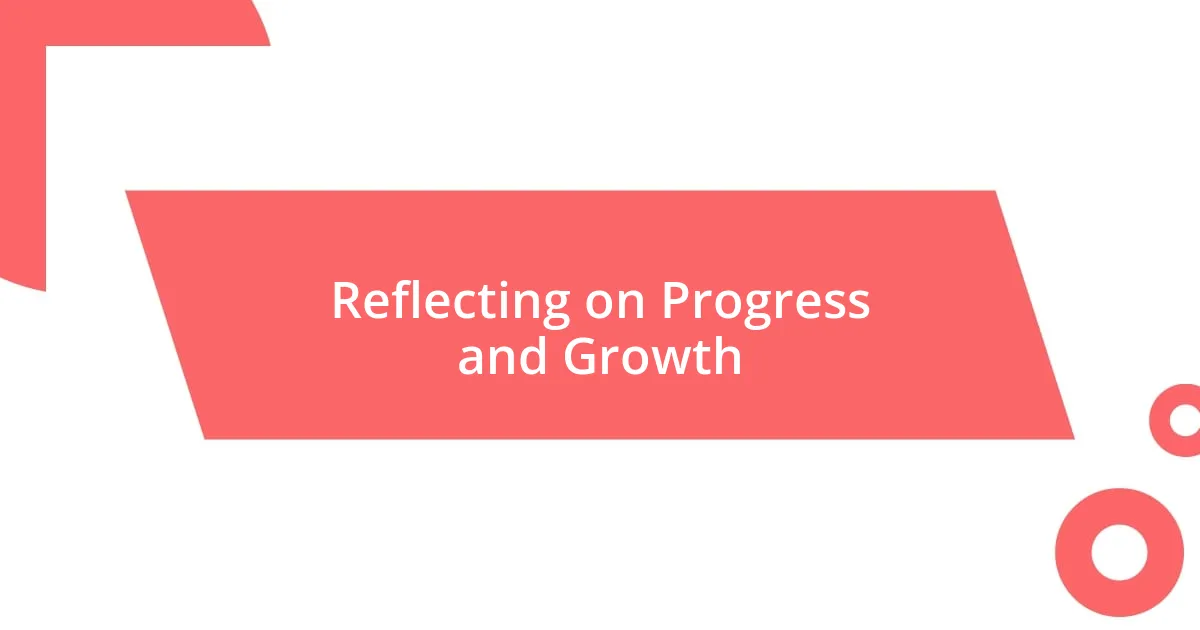
Reflecting on Progress and Growth
Reflecting on my journey has been one of the most enlightening aspects of my growth as a performer. I often take time to review past performances, not just to evaluate my technical skills, but to gauge my emotional journey, too. There are moments when I watch myself on video, feeling a mix of embarrassment for certain choices and pride for the courage I showed at that time. Isn’t it fascinating how we can become both our harshest critics and our biggest supporters?
There were instances when I recorded my thoughts in a journal right after a show. Those late-night reflections revealed a lot about my evolving mindset—how each experience, whether fulfilling or challenging, contributed to a richer understanding of my artistry. I remember a particularly difficult concert where I stumbled through a song, but upon writing about it later, I realized that it revealed my resilience. I learned that growth doesn’t always mean perfection. It’s a journey of embracing the messy, real moments. Have you ever found clarity in journaling about your experiences?
Gratitude plays a significant role in this reflective process for me. I’ve made it a habit to express appreciation for my progress, no matter how small. During a particularly tough performance season, I started listing three things I was grateful for after every show. It could be as simple as an encouraging smile from an audience member or the thrill of trying something new on stage. This practice not only shifted my focus from perceived failures to growth opportunities but also deepened my connection to the audience. How does reflecting on your experiences shape your outlook on growth?
